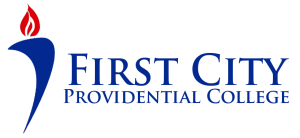This course is designed to provide students with insights into the nature of psychology as a profession and the links between theoretical developments in psychology and professional practice. This course will focus on the challenges associated with providing services to complex, vulnerable, and diverse populations as well as the ethical responsibilities of practitioners. The focus of this course also includes discussions of the latest psychological researches (i.e., clinical, industrial/organizational, and educational settings) published in local and international journals as well as career choice and management in Psychology.
This course will introduce the students to the emerging field of Positive Psychology: the science of positive experiences, positive institutions, and human strengths. For the past several years, psychology was devoted mainly on studying mental illness and how to treat patients. The Positive Psychology movement reminds us that psychology is also dedicated to promoting human strengths and virtues and that its goal is not merely to treat, but also prevent illness.
This course is designed to provide students with insights into the nature of psychology as a profession and the links between theoretical developments in psychology and professional practice. This course will focus on the challenges associated with providing services to complex, vulnerable, and diverse populations as well as the ethical responsibilities of practitioners. The focus of this course also includes discussions of the latest psychological researches (i.e., clinical, industrial/organizational, and educational settings) published in local and international journals as well as career choice and management in Psychology.
Research in Psychology 1
This course develops students’ understanding of the scientific method as applied in psychology, including both qualitative and quantitative research techniques. Topics include literature review, research question formulation, experimental and non-experimental designs, ethical standards (such as those established by the APA), basic data analysis, and report writing in APA format. Through readings, practical assignments, and critical analysis of published research, students learn to evaluate methodology, design studies, gather and analyze data, and communicate scientific results effectively. Emphasis is placed on ethical conduct of research, reliability, validity, and understanding various research approaches such as observational, correlational, and experimental methods.
Research in Psychology 2
Building on the first course, Research in Psychology 2 focuses on advanced methods of research and statistics in psychology. Students engage in deeper analysis of experimental and quasi-experimental designs, sophisticated statistical procedures (such as ANOVA and regression), and advanced data reporting. The course puts emphasis on independent project design, critical analysis of peer-reviewed literature, and the application of research skills to real-world questions and psychological assessment. Students will solidify their ability to synthesize research findings, ensure ethical standards in diverse contexts, and articulate the strengths and limitations of different research methodologies, culminating in the creation and communication of an original research project
This course provides an overview of psychological concepts, theories and research findings for effective human interactions and performance in the workplace. Topics include organizational structures and systems, organizational structures and systems, organizational communication processes, leadership, motivation, conflict resolution, problem solving and decision making, team dynamics, effort in human resource development and management, and organizational change and development.
This course exposes students to approaches to counselling. Each of the approaches is discussed in the light of its theoretical background, historical development, view of human nature, goals, functions and methods and techniques. Effective counsellor traits and ethical considerations in the profession is also be emphasized. It also aims to teach students to select wisely from various theories and techniques and to begin to develop a personal style of counseling.
This course deals with psychological principles, theories, and methodologies to issues of teaching and learning in schools. It also examines the theoretical and applied aspects of learning, motivation, human development, personality, assessment, and evaluation in the educational setting. Emphasis is placed on developing skills to better understand learners to foster improved learning, influence and manage classroom learning, and recognize and consider individual differences.
